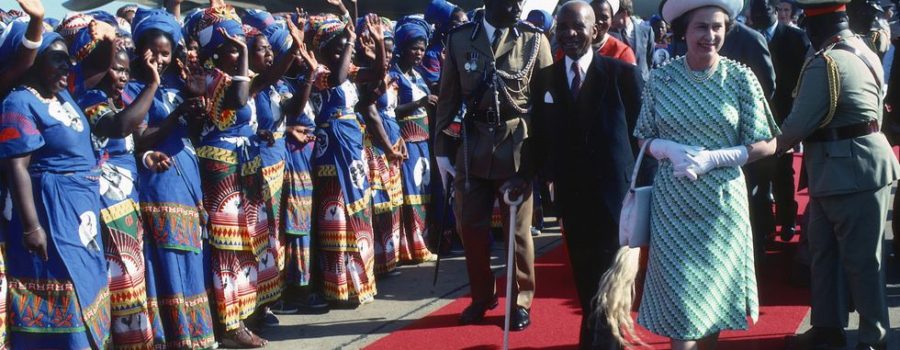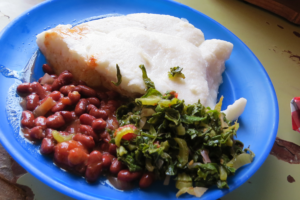In Malawi, I work mainly at the Queen Elizabeth Central Hospital. It is the largest public healthcare facility in this country of 19.1 million people.
In most of Africa, people typically receive primary healthcare at a Health Centre. In this country there are 328 of them, placed approximately equidistant from one another. Health Centres are typically staffed by a clinical officer (equivalent to a physician’s assistant in the USA) or a nurse. They often have basic diagnostic testing like rapid tests for malaria. They have basic medications in stock like antibiotics and antimalarial medicines.
The next step up are the District Hospitals. There are 24 throughout the country, one in each district except for Likoma Island (out in Lake Malawi, very near to the lake’s eastern shore which is Mozambique) and in the three districts that hold Central Hospitals. District Hospitals are the first level of care where patients may encounter physicians.
Higher still in the health care chain are Malawi’s four Central Hospitals, one in each of the northern and central regions, and two here in the country’s southern region, in Blantyre and Zomba. The Central Hospital located in Blantyre is named Queen Elizabeth Central Hospital, QECH.
The hospital opened in 1958. The triangular front entrance (still well maintained) was built before that. Queen Mary (The Queen Mother) visited after the front entrance was constructed but before ground was broken on the large majority of the hospital’s buildings. Video (https://www.britishpathe.com/video/queen-mother-in-nyasaland ) shows her at the hospital’s front entrance, digging a shovelful of dirt to ceremonially start construction, and the guest of honor on a shaded podium in front of huge crowds sitting in the sun, Union Jack flying overhead.
Did you know there was a Queen of Malawi? I did not. Malawi gained its independence from Great Britain in 1964. From 1964-1966 it was a constitutional monarchy within the British commonwealth. As such, during those three years Malawi had an elected president (Hastings Banda) but Elizabeth II was the Queen of Malawi. Amazing.
Though Elizabeth II visited Malawi from 22-25 July 1979, she never visited Blantyre, much less her namesake hospital. From the old photos, it appears she spent her time in the new capital of Lilongwe attending receptions, hobnobbing with Hastings Banda, and wearing beautiful jewelry. Queenly things.

The hospital is made up of multiple one-story moderate size, nondescript red brick buildings. Each building contains a separate Ward—internal medicine, obstetrics, pediatrics, etc. The buildings are joined by long covered corridors with cement floors, wainscoting painted an odd (though not unpleasant) aqua green, and continuous jalousie windows on both sides, always open to let in the air and light. The Wards are large open spaces. Metal beds with uncomfortable plastic mattresses are crammed moderately closely to the next. An ill person lays 3 or 4 feet from the one beside them. In pediatrics, when the Ward is busy, two children occupy one mattress, their heads are opposite ends.
The spaces between the hospital’s buildings are shaded by tall trees and populated by guardians. Almost all hospitalized patients have a guardian, a family member, friend, or neighbor, who cares for the patient by feeding and bathing them, reminding the nurses if medication is forgotten, washing the bed linens (which are not provided) and bringing in food. When it is not visiting hours, the guardians sit in the shade on bright pieces of fabric in the spaces between buildings. There are places for the guardians to wash the patient’s bedding and clothing. At night they pull a piece of fabric or a blanket over themselves and try to sleep on the unpadded ground. Life in Malawi is not easy.
Public medical care in Malawi, whether at the Health Centre, District Hospital, or Central Hospital, is all provided free of charge. Medicines and diagnostic tests are in short supply. If a lifesaving medication is not stocked at a Central Hospital, the life is not saved. Unfortunately, many such medicines are not stocked here. Though it is not easy being ill anywhere in the world, it is especially difficult here in Malawi.






